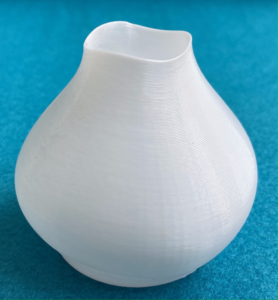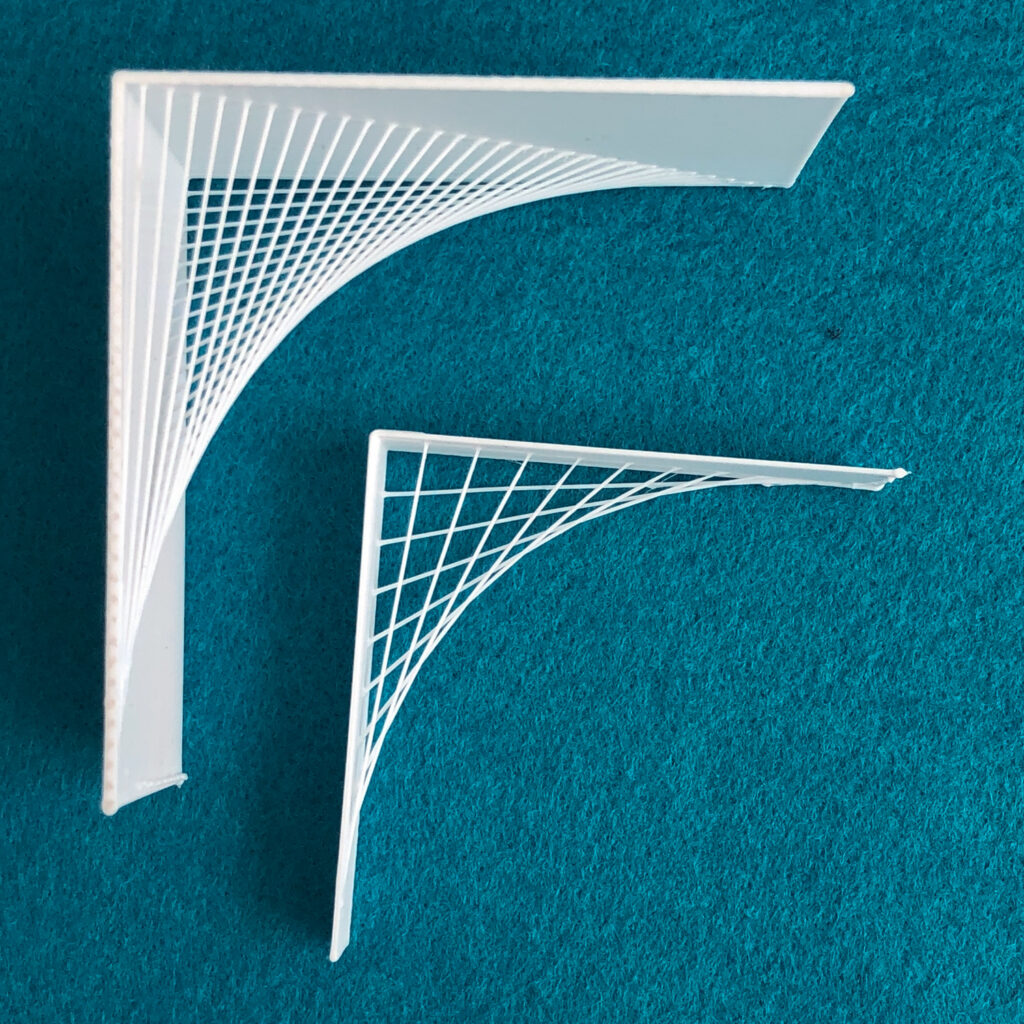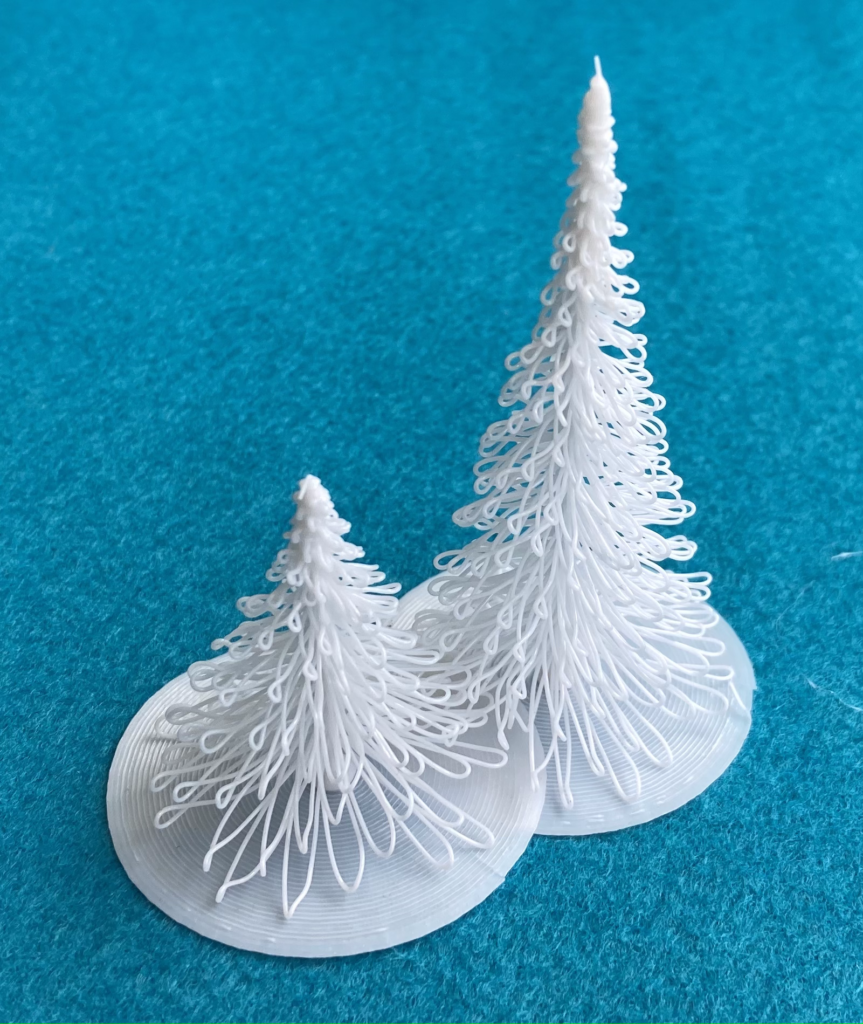Due Dates
Assignment : 9am, Tuesday October 31
Initial comments: 9am, Thursday November 2
Comment responses: midnight, Saturday November 4
Description
The purpose of this assignment is to explore the direct generation of the code (g-code) that controls 3D printers and other fabrication machines. You will also explore structures that cannot be generated by slicing software. For this assignment, you will need to work in dialogue with your printer. That is, you will need to generate a .gcode file, test it out on your printer and then adjust your printer depending on these results. Expect to spend time iterating on your code and print for each of your forms. Note that your forms will print relatively quickly since they won’t involve infill or support.
Write a program that generates g-code for three different shapes that cannot be generated by a slicer. All of your prints should be significantly different from the forms we discussed and generated in class. Requirements:
- At least one form should incorporate freestanding lines of filament in some way. See the middle and right-hand images below.
- At least one form should incorporate non-planar movements of the nozzle in z. For example, experiment with the different filament qualities you can achieve by moving the nozzle head above the print surface. Or, build a shape with with a complex non-planar toolpath (a toolpath that involves movement in z for each “layer”). See the left-hand image below



Examples of prints generated by the ExtruderTurtle library are shown above. Note: a single form could fulfill both requirements listed above. You are welcome to use any programming language and environment you wish for this assignment.
Some references that might be inspiring or useful:
Defextiles project: https://www.media.mit.edu/projects/defextiles/overview/
LIA filament sculptures: https://www.liaworks.com/theprojects/filament-sculptures/
3D printed ceramics by Emerging Objects: http://emergingobjects.com/project/gcode-clay/
A paper on g-code techniques: https://haruki.xyz/pdf/efdm_preprint.pdf
A news article about 3D printed brushes: https://3dprint.com/32480/3d-print-paintbrush-bridging/
A paper about ExtruderTurtle: https://handandmachine.org/publications/Extruder_Turtle.pdf
Clay 3D printer
You are welcome (encouraged) to use one of our clay 3D printers for this assignment. You can find a tutorial for one of them here: https://handandmachine.org/index.php/potterbot/ Touch base with Leah or Camila for a short tutorial before you use the machine. You’ll need to set the correct parameters before you generate your g-code file.
What to Hand In
Create a post on this website that documents the work that you did. Your post should include:
- A description of your process and how your code generates your three shapes.
- An explanation of why your shapes cannot be generated by a traditional slicer.
- A discussion of your iterative design process. Describe printing experiments you conducted before arriving at your final forms. How did the trial forms you printed impact your final code and form choices?
- Your code. Name your files or folder for this assignment: FirstnameLastnameLA4.
- A screen shot of each g-code file from Cura.
- Excellent images of your three printed artifacts.
Add your post to the “Large Assignment 4 – G-Code” category.
Discussion
Read all of your classmates’ posts and comment at least three of them. Try to comment on projects that haven’t been commented on or that have fewer comments. Respond to at least two comments. If you don’t have enough comments to respond to, email Leah.